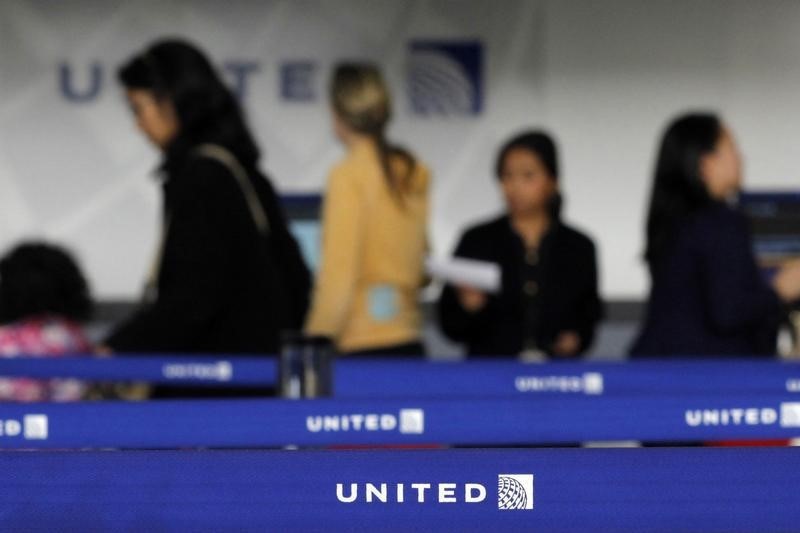This post was originally published on this site
https://i-invdn-com.investing.com/trkd-images/LYNXMPEJ2C0UV_L.jpg
CHICAGO (Reuters) -United Airlines Holdings Inc on Monday forecast an unexpected loss in the current quarter, citing lower demand as well as higher costs from a potential contract deal with pilots.
Company shares fell 7%.
Booming travel demand has allowed U.S. carriers including United to offset cost pressures with higher ticket prices. Investors, however, are worried any slip in demand would make it harder to protect profits.
United said a combination of lower-demand in January and February and higher capacity has weakened its pricing power.
Total revenue per available seat mile, a proxy for pricing power, is estimated to be up 22% to 23% in the first quarter from a year ago, slower than the 25% growth expected earlier.
The Chicago-based carrier now expects an adjusted loss between 60 cents and $1.00 per share for the quarter through March. In January, the company forecast an adjusted profit between 50 cents and $1.00 per share for the quarter.
Sheila Kahyaoglu, an analyst at Jefferies, said United’s latest outlook provides “some credence to the bear thesis” that a weakening consumer could put downward pressure on pricing power this year.
United, however, said its outlook for the second quarter has improved, with total operating revenue now expected to be up in the “mid-teens” versus last year.
It also retained the full-year earnings outlook.
U.S. carriers have seen a jump in their labor and fuel bills in the past year. The industry’s wage cost pressures are expected to worsen after pilots at rival Delta Air Lines (NYSE:DAL) secured a contract deal that includes over $7 billion in cumulative increases in pay and benefits over four years.
United and American Airlines (NASDAQ:AAL) are now under pressure not just to conclude their pilot contract negotiations, but also better Delta’s deal.
United is now accounting for an agreement with its pilots, who have been conducting informational pickets to express frustration over delays in negotiations, in the current quarter instead of the second quarter.
As a result, it expects non-fuel operating costs to be flat to up 1% year-over-year. The costs were projected to be down 3%-4% earlier.
Analysts at J.P. Morgan called Delta’s deal “the catalyst” behind United’s move.
The company also expects its fuel bill in the quarter to be about 4% to 7% higher than the previous estimate.
Worries about demand and costs have led to a more than 20% fall in the NYSE Arca Airline index in the past year even as the industry enjoys the strongest consumer demand since the start of the pandemic.

